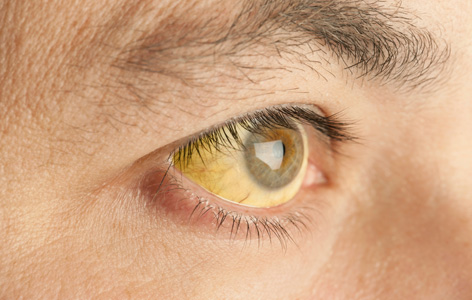
Bile ducts are structures in the liver that transport bile—a substance that helps with digestion. The ducts are lined with cells called cholangiocytes; when these cells malfunction, liver damage occurs often resulting in the need for a transplant. Although bile duct disorders are well-recognized causes of liver disease, the events leading to cell malfunctioning are not fully understood due to the lack of suitable experimental models.
For the first time, a research team led by Drs. Anand Ghanekar (TGHRI Affiliate Scientist), Gordon Keller (PM Cancer Centre Senior Scientist and McEwen Centre Director), Shinichiro Ogawa (McEwen Centre postdoctoral fellow) and Binita Kamath (SickKids Research Institute) has developed a robust tool to study bile duct cells. The researchers demonstrated a method to produce cholangiocytes from human stem cells, based on providing the stem cells with certain activators (known as NOTCH, EGF, HGF or TGFβ) at specific times during the production process. Although the cells are cultured in a laboratory dish, the procedure allows them to naturally form three-dimensional ducts that perform cholangiocyte-related functions.
"This method enables us to compare cholangiocytes from people with abnormal bile ducts to those from people with normal tissues," says Dr. Ghanekar. "This way, we can uncover what leads to cholangiocyte malfunctioning and develop new therapies for those with bile duct disorders like cystic fibrosis."
Dr. Ogawa adds, "This study complements our previous work that identified a method to generate liver cells from the same stem cells. In addition to helping develop drugs, we now have the essential building blocks to begin engineering functional human liver tissue."
This work was supported by the McEwen Centre for Regenerative Medicine; the Canadian Institutes of Health Research; the University Health Network Multi-Organ Transplant Program Academic Enrichment Fund; the Alagille Syndrome Alliance; the SickKids Research Institute; the Rare Disease Foundation; the Childhood Liver Disease Research and Education Network; the National Institute of Diabetes, Digestive and Kidney Diseases; The Princess Margaret Cancer Foundation; and the Toronto General & Western Hospital Foundation. G Keller is a Tier 1 Canada Research Chair in Embryonic Stem Cell Biology.
Directed differentiation of cholangiocytes from human pluripotent stem cells. Ogawa M, Ogawa S, Bear CE, Ahmadi S, Chin S, Li B, Grompe M, Keller G, Kamath BM, Ghanekar A. Nature Biotechnology. 2015 July 13. [Pubmed abstract]




